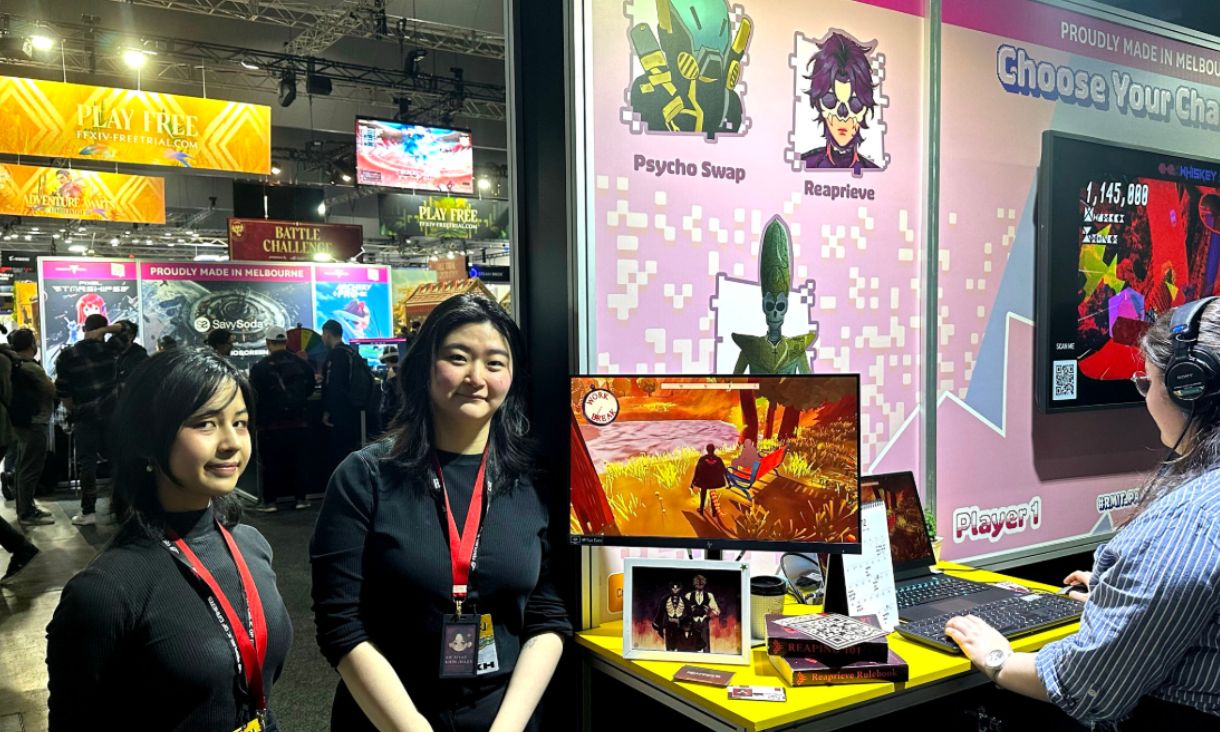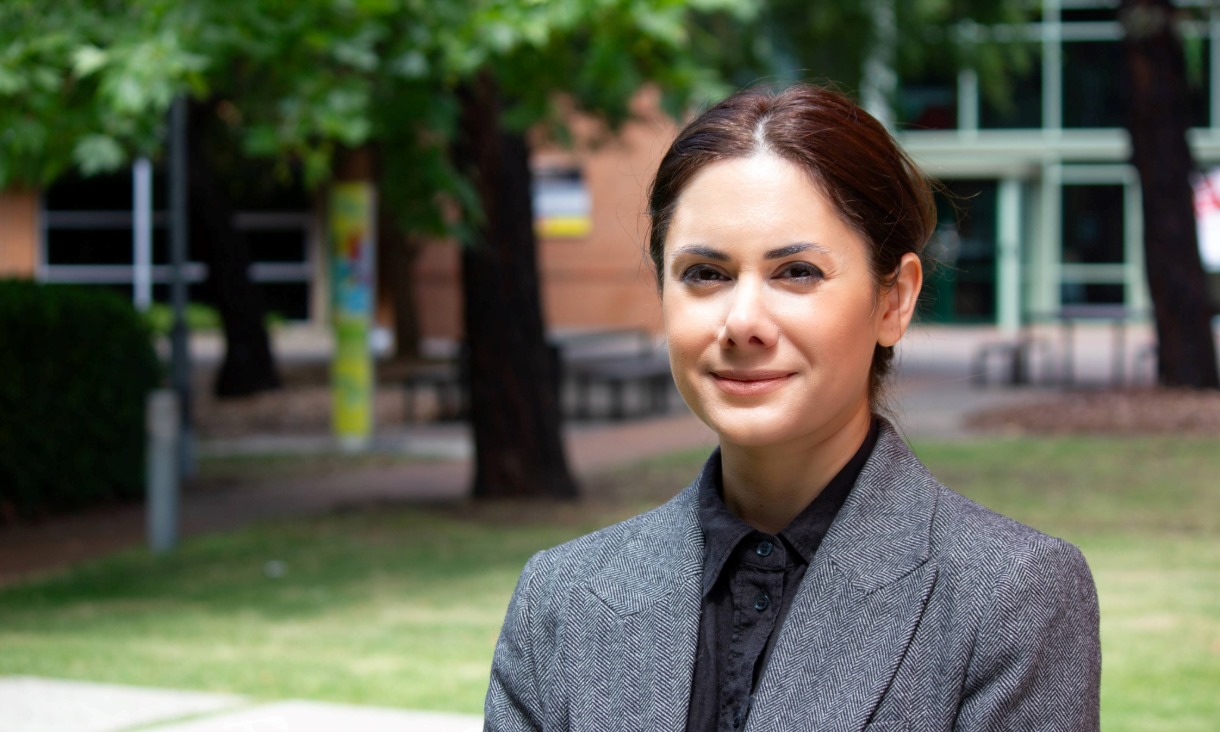This year, the week-long festival will take place from 9–15 May. Across seven days, a broad program of events, workshops, panels and performances — many co-presented and co-curated by RMIT Culture and RMIT academics — will bring Melburnians together to share ideas, challenge assumptions, and spark new ways of thinking
Highlights from this partnership between RMIT and Melbourne Knowledge Week includes a keynote address from internationally renowned data journalist Mona Chalabi at RMIT’s The Capitol, presented in partnership with Knowledge Week and The Wheeler Centre; the Future Film series at The Capitol; and an activation in Melbourne Knowledge Week’s Prototype Street, designed by RMIT’s VC Senior Research Fellow Dr Troy Innocent.
City of Melbourne’s Education and Innovation portfolio lead, Councilor Davydd Griffiths, said the program provided the perfect platform for the exchange of ideas.
‘Melbourne Knowledge Week will explore exciting opportunities, tackle challenges, and build the skills we need to shape our future – solidifying Melbourne’s status as a university city.
“We want to support inquisitive minds and encourage learning at all ages, and this event is the ideal forum for our great thinkers and learners to come together to exchange ideas.”
The Melbourne Knowledge Week program includes a series of talks showcasing RMIT research, produced in collaboration with RMIT Culture, and exploring themes including waste and the circular economy, climate policy and radical hope, and the future of Melbourne as a digital city.
The aim of the talks is to translate knowledge and examine issues affecting the community in an accessible and engaging way and feature researchers from the ARC Centre of Excellence for Automated Decision-Making and Society, the RMIT Circular Economy Hub, and RMIT PlaceLab, alongside collaborators, industry representatives and community members,
The talks series will also feature a live recording of podcast Barely Getttin’ By, hosted by Dr Emma Shortis.
RMIT Culture will also host Melbourne Knowledge Week’s The Future on Film series at The Capitol, at RMIT.
RMIT’s Head of Cultural and Public Engagement, Paula Toal, said she was “thrilled” with the program and RMIT Culture’s partnership with Melbourne Knowledge Week.
"It positions us to play an important role in showcasing some of the amazing research happening in our city and engage the community in robust conversation and debate about how that might shape and inform a better future for Melbourne,” she said
During the week-long festival, RMIT students will also have the opportunity to present their work and engage with the public.
Final-year creative writing students will pass on their learnings from a comic-making studio led by Ben Juers and Rachel Ang from Glom Press. The Comic Making for Beginners workshop will help you hone your visual storytelling skills to tell stories about how we use the city.
Media students currently working on short documentary films exploring RMIT research and teaching around waste and the circular economy will also have their work screened at The Capitol as part of the RMIT Culture talk: ‘What Does Waste Mean to You?’
Rohan Spong, who leads the media studio Make Haste! Film Waste! is excited by the opportunity the partnership with Melbourne Knowledge Week provides students.
‘The films the students are making in response to briefs developed with the Circular Economy Hub@RMIT range from the very local to the global, and profile characters orbiting RMIT who are engaged with the problem of waste and the opportunities afforded by the circular economy.
“Each of the four student groups have come up with inventive ways to visually communicate the relevant concepts. It will be an exciting and meaningful culmination of the semester for the students to have their films screened at The Capitol as part of Melbourne Knowledge Week,” he said.
Other RMIT projects featured in the Melbourne Knowledge Week program include a Pitching and Storytelling Fundaments workshop run by the RMIT Activator; The Society of NanoBioSensing, a gesture-responsive installation by Andrea Rasell; and Urbans Commons, a modular, mobile parklet designed by RMIT’s Dr Troy Innocent.
Innocent says who spoke about the value of public space activations like MKW for research:
‘Public spaces are critical for community connection and social wellbeing. While Melbourne was riding through another COVID-19 wave, we collaborated on the design of a playful parklet to lead the return to a reimagined social life in urban spaces post-pandemic.
“Urban play is crucial to help us rediscover and reimagine urban society after the pandemic. We have worked towards making parklets playful again with music games, temporary exhibitions, workshops and mixed realities, including new projects developed by RMIT MAGI (Master of Animation, Games and Interactivity) students.’
Melbourne Knowledge Week runs from 9–15 May.
Check out the full program at: mkw.melbourne.vic.gov.au
You can find all the RMIT events at: RMIT at Melbourne Knowledge Week 2022 - RMIT University
Story: Else Fitzgerald




